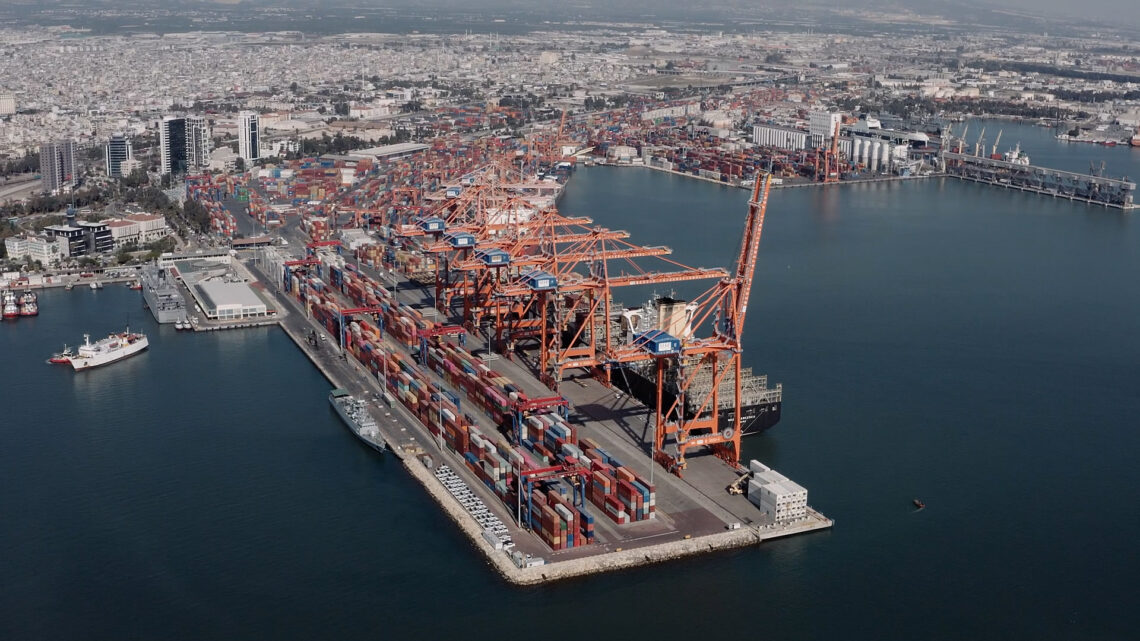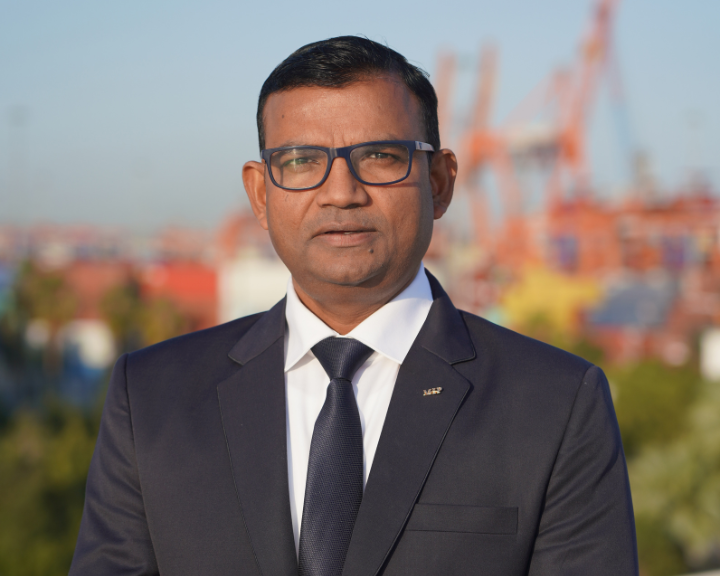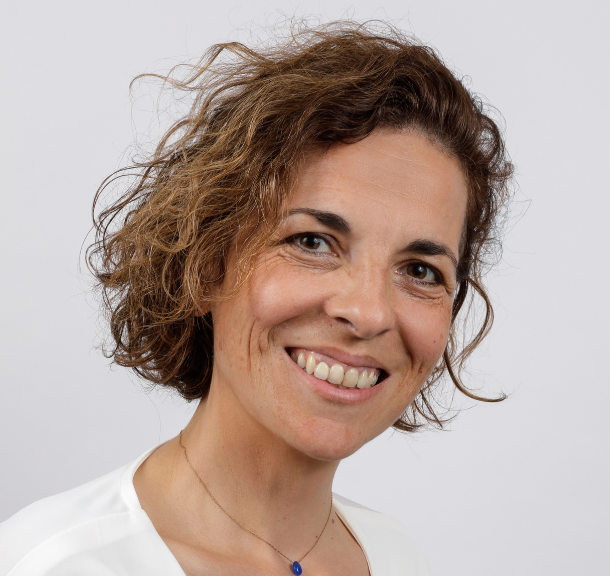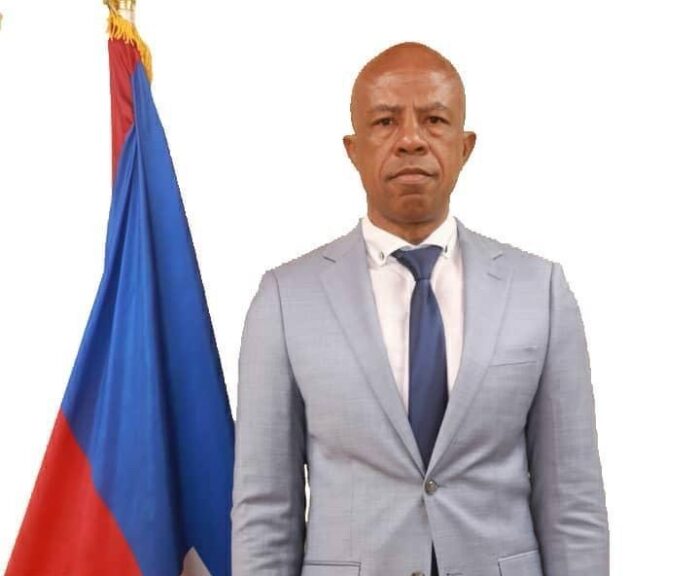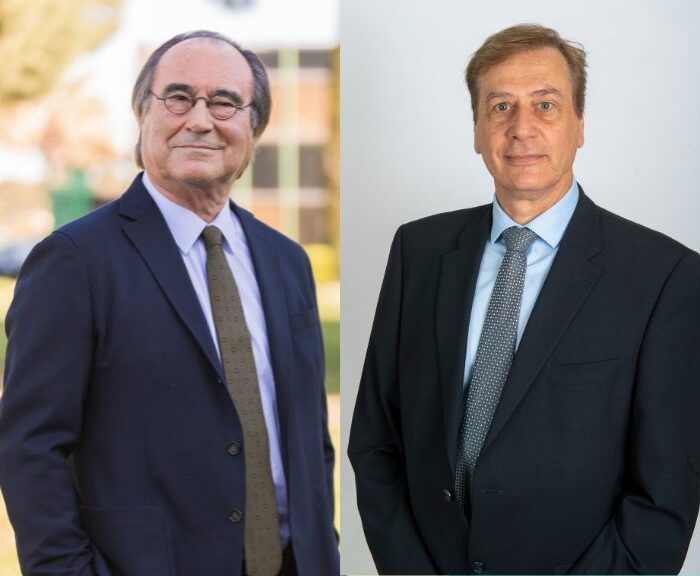Mersin International Port Management INC. (MIP) is the largest multi-purpose port in Turkey and is an important hub that connects the five continents with Türkiye’s industrialized cities as well as its neighbouring countries in the Middle East and the Black Sea region. The Mersin municipality initially founded the port in the late 1880s following the launch of the Adana-Mersin railway to respond to the increased number of ships arriving and departing from the piers. Since then, it has grown into a highly imported port for the country and the region.
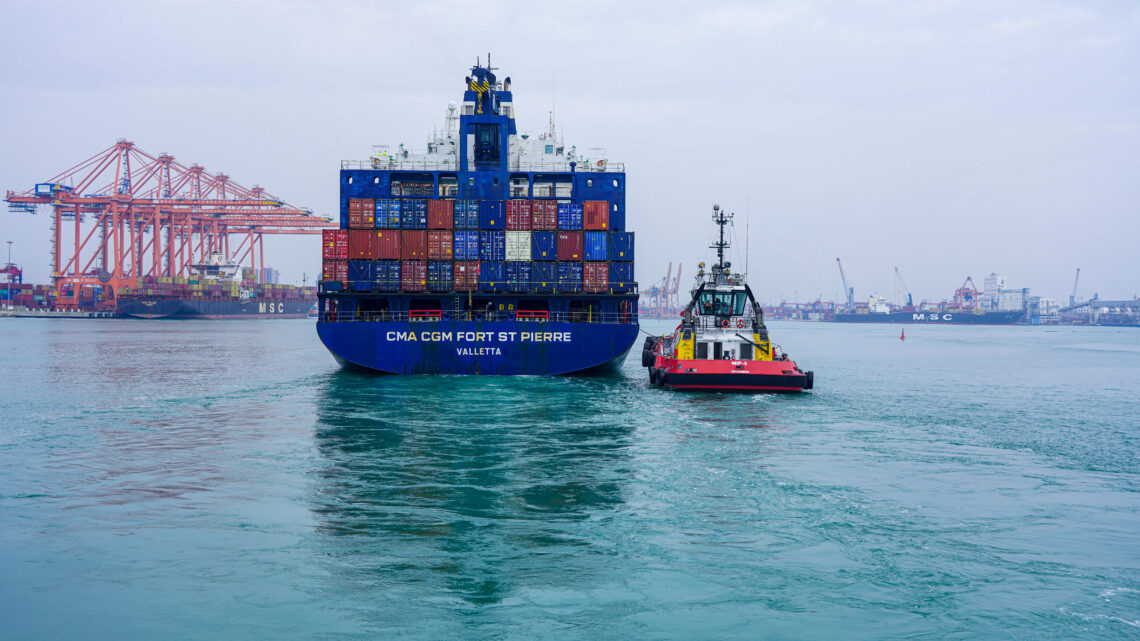
Interview with Ajay Kumar Singh – General Manager (CEO)
Could you briefly introduce your port to the members of our international network?
Mersin International Port Management Inc. (MIP) is Türkiye’s largest multi-purpose port. We handle containers, bulk and general cargo as well as project, liquid and roro cargo. We also have a passenger terminal. In addition, we offer land side services such as warehousing, cargo inspection, cold storage and a Container Freight Station (CFS) where cargo can be consolidated and deconsolidated. Finally, we provide marine services such as pilotage, mooring and tugboat towing in the region.
In 2007, MIP was founded as a joint venture between the terminal operator PSA International and the Turkish infrastructure conglomerate Akfen. They took over the concession of Mersin Port from the Republic of Türkiye State Railways (TCDD) for a period of a minimum of 36 years. In 2017, IFM Investors joined as our third shareholder.
We are one of the main container ports in the Eastern Mediterranean Region and have excellent connections to the five continents. A significant part of Türkiye’s import and export volume travels through MIP because of our wide hinterland and extensive transportation network with terrific road and rail connections to Türkiye’s industrialized cities such as Ankara, Gaziantep, Kayseri, Kahramanmaraş and Konya as well as neighbouring countries such as Syria, Iraq and the Commonwealth of Independent States (CIS).
In 2003, MIP handled two million Twenty-foot Equivalent Unit containers (TEUs) and eight Million tons of cargo. On average, we handle a volume of 30 million tons of cargo per year. Moreover we aims to add value to the region with our CSR projects while maintaining our position as a leading port with approximately three thousand employees.
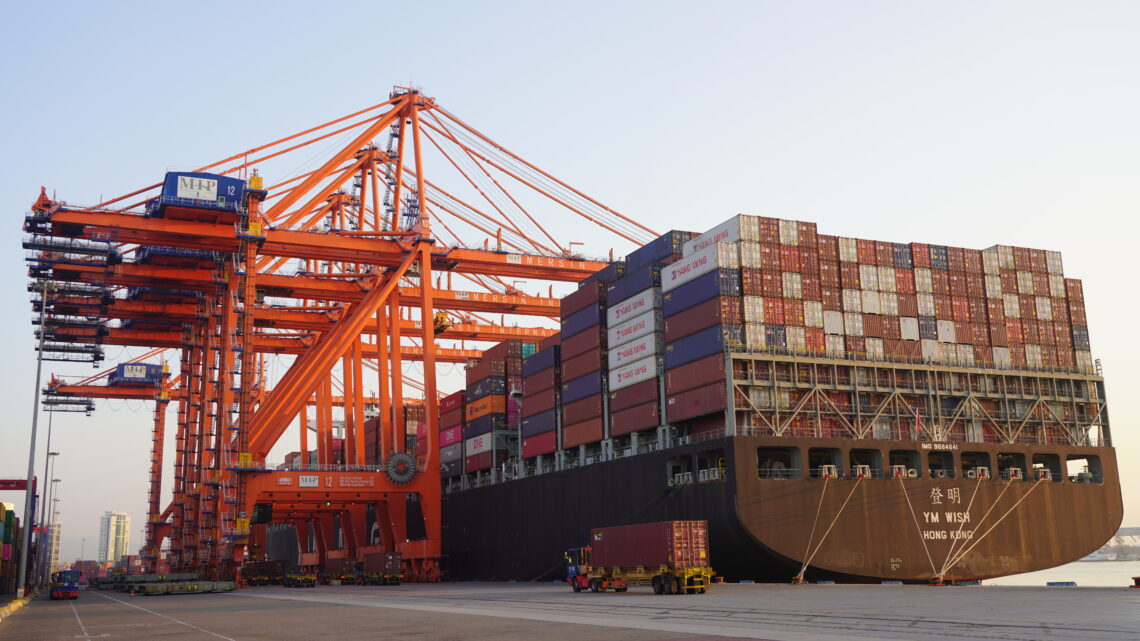
What can you bring to the AIVP network?
MIP sees this network as an opportunity to exchange ideas and cooperate in different fields to improve our port and the City of Mersin, while at the same time sharing our expertise and that of our partners’ larger network with other members. This can be about how we manage our port and port adjacent products, as well as how we handle our relations with the Mersin community and other stakeholders.
Türkiye’s economy is rapidly expanding and container ships are becoming ever-larger. To stay competitive and safeguard our port’s future in this evolving landscape, we are investing in larger cranes, longer quays, deeper drafts, and expanding our yard capacity. With our East Mediterranean Hub 2 (EMH2) expansion project, which we launched in late 2023, we are investing half a billion USD to among other things allow two mega-vessels of over 400 metres long to berth at our terminal simultaneously. We are very interested in how other cities and ports are handling such projects from different perspectives and are willing to share our own experiences.
Community and stakeholder relations is also an area we are very interested and involved in. Our dedicated team is committed to delivering value to our customers and the city we live in by focusing on mutually beneficial relationships with the many stakeholders along the supply chain based on trust and sustainable business pillar. These stakeholders include governmental and non-governmental organizations, shipping lines, cargo owners and of course the people of Mersin.
Another area in which we can contribute to AIVP is our experiences in striving to reach PSA’s ambitious sustainability targets of cutting Green House Gass (GHGs) emissions in half by 2030 and completely eliminating them by 2050. We are excited to learn more about how other port cities are dealing with this topic and sharing what MIP is doing.
Mersin International Port has a long history of contributing to its local community through various activities such as building primary schools, collecting sea waste, or creating playgrounds with recycled materials. Which activities have you undertaken recently and why are such activities important to the port authority?
Investing in social awareness and our local community’s long term well being is part of our corporate culture. Every year, we select projects that will make a difference for our port community, the people of Mersin and the environment. This includes projects that support women, children, local entrepreneurs and the environment as well as our employees.
One important example is our Gates Project that we recently inaugurated. Together with local authorities, we removed a large part of the port-bound traffic from the city of Mersin by creating new off ramps and fly overs from the highway and reduced traffic jams at the port by automatizing the gates of our terminal.
We were also able to offer significant help when the horrific earthquake struck Eastern Türkiye in 2023. The MIP community immediately rallied to provide aid and rescue materials the hardest hit areas and assistance to MIP family members affected by the disaster.
In recent years, we have done a lot to support women in and around Mersin. In our district, we have for example built a women’s guest house to provide a safe living space for women who have been subjected to violence. In addition, we develop policies to increase the female employment rate at MIP and our sector and help them upgrade their skills in close cooperation with reputable NGO’s such as KAGIDER (Women Entrepreneurs Association of Turkey).
We also continue to invest heavily in our future: the children of Mersin. At this time, we are for example building our second primary school in the city and have established music academies for children in the area.
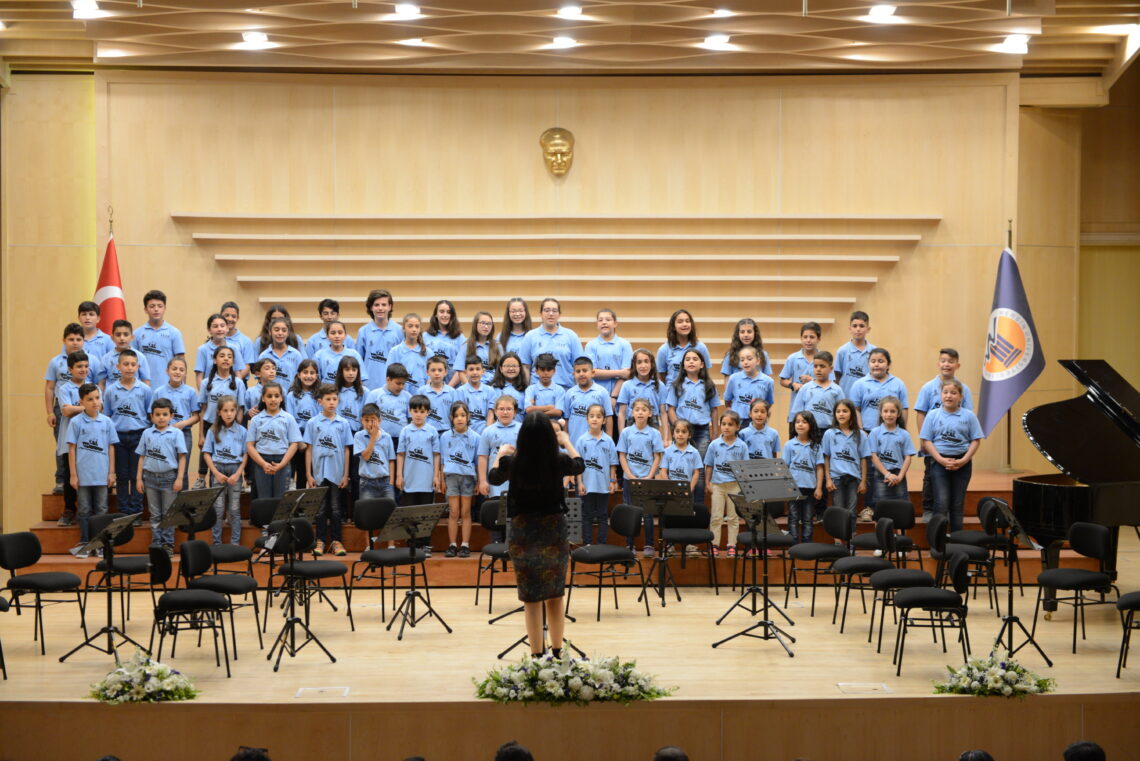
The environment is also something close to our hearts. To provide better and healthier living conditions, we are building parks using sustainable materials and regularly organise ocean cleanups. We are also working towards cutting our carbon footprint in half within the next five years by introducing new sustainable equipment, buildings and processes in accordance with green port criteria.
Finally, we have been working hard towards reducing the number of accidents at our port because we believe strongly that each accident, no matter how small, is one too many. Each and every one of our workers should be able to return to his or her family safely after their shift, without any exceptions. For this reason, we are transforming occupational safety from being a list of rules that everyone has to follow to becoming part of our shared corporate culture. Due to this program, we have seen some significant decreases in accidents in recent years.
Mersin Port is currently in the second phase of its East Mediterranean Hub 2 (EMH2) expansion project. How is MIP ensuring the social acceptance of the project since it may have visual impacts and construction nuisances?
The East Med Hub 2 (EMH2) Project, which we launched under the motto “All Together for Mersin”, will make a significant economic contribution to the city and Türkiye. With the new berth that will be commissioned in the first quarter of 2025, Mersin will become a port of call for the world’s largest merchant ships. It will also increase MIP’s capacity from 2.6 to 3.6 million TEU and will provide 500 direct and 5,000 indirect new jobs.
To ensure that we do not tax the environment around the EMH2 project, we have conducted a large number of environmental impact studies that asses the project’s effect on among other things noise levels, biodiversity, and air quality. We have also conducted a series of social impact surveys of the people living around the construction area.
Moreover, we have been continuously communicated with the public and stakeholders about the project through numerous channels such as social media, our website and brochures. We have even organized events such as meetings and site visits as well as an information booth at the street festival we sponsor to discuss the project face-to-face with the people of Mersin.
